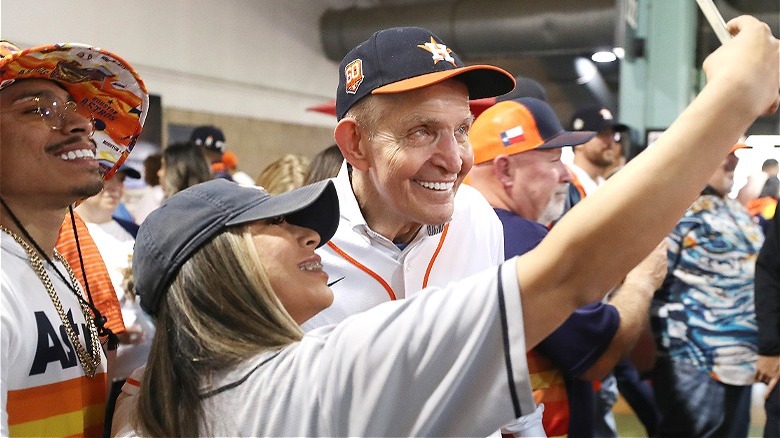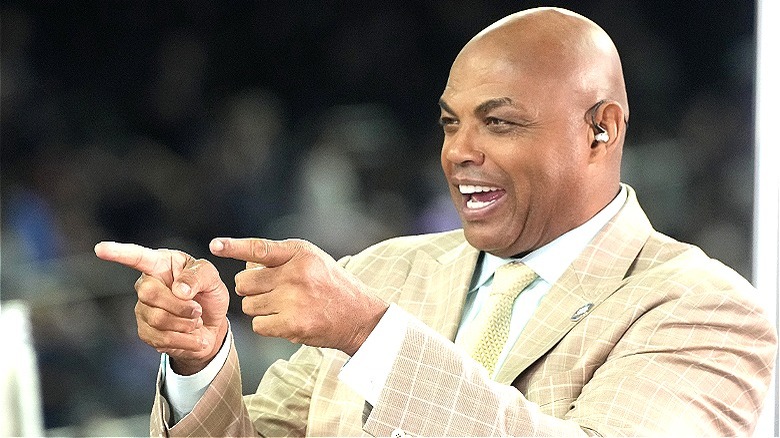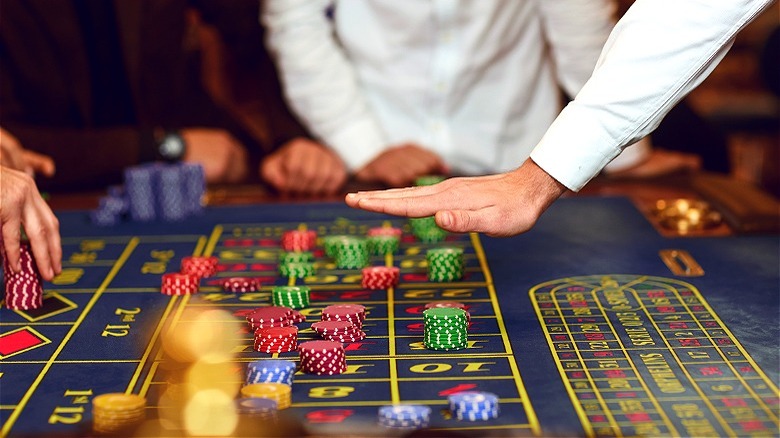5 Of The Most Gut-Wrenching Gambling Losses In History
According to Statista, U.S. casinos grossed $67 billion in 2023. That marked a record-breaking amount of revenue for commercial casinos, representing a 10% increase year-over-year from 2022. Even during a period of uncertainty where high-interest rates and mass layoffs dominated the news, casinos generated $17.4 billion in the fourth quarter of 2023 — $6.2 billion of which was made in December around the holiday season. Sports betting also had a big year in 2023, with sportsbook revenue and wagered bets totalling $130.7 billion; increases of 27.8% and 44.5%, respectively.
In 2024, the pace, so far, is even higher. As of May 31, gaming revenue in the U.S. totaled $29.75 billion, according to the American Gaming Association's commercial gaming revenue tracker. That represents a 7.1% increase from 2022 (for the same time period). Of course, much of this money is generated from losing bets on the part of gamblers, like in the case of the following five gamblers, who's gut-wrenching gambling losses are among the biggest in betting history.
Jim McIngvale: $15.4 million
Jim "Mattress Mack" McIngvale, owner of Gallery Furniture, used the money he made turning the struggling business into his own personal empire as seed capital for sports bets. Sure, it's not what your average financial adviser would call the wisest of investments, but it seems to have worked out for the businessman and avid sports fan. In 2022, Mattress Mack made off with $75 million after a World Series bet on the Houston Astros, the largest sports betting payout in history.
Known for eccentricities like a promotional fight with Muhammad Ali and a charitable bout with former WWE wrestler "Stone Cold" Steve Austin, McIngvale isn't the person you think of when you compile a list of biggest losers. Yet, what goes up must come down, and any seasoned gambler will tell you can't win them all.
In 2022, McIngvale made two separate bets worth $10 million total for the Cincinnati Bengals to defeat the Los Angeles Rams in Super Bowl LVI. Things didn't go as planned, however, when the Bengals choked in the final two minutes to lose their 20-16 lead to the Rams, handing McIngvale a costly loss. He also lost money on other NFL bets that year, including wagers on the New England Patriots and the Tennessee Titans. McIngvale's estimated losses for 2022 totaled $15.43 million. (That year, McIngvale also lost money to college football, $6.2 million after Georgia lost in the national title game.)
Charles Barkley: $25 million
Charles Barkley, an 11-time NBA All-Star and one-time MVP (1993), has gambled for decades, a hobby that apparently goes all the way back to the 1980s and his days playing for the 76ers. While it wasn't seen as an issue then, by the time he retired in 2000, it became one. The extra time combined with the wealth he accumulated as a sports legend, from endorsements and big paychecks, led to what Barkley himself admitted were huge losses.
In 2006, Barkley copped to losing an estimated $10 million in casino play. While not calling it an addiction, by 2008, the Wynn Las Vegas was suing Barkley for $400,000 of unpaid gambling debts, which he settled with a cashier's check shortly afterward. In a message posted on the social platform X (then Twitter), courtesy of the Club Shay Shay Podcast in May 2024, Barkley finally admitted to probably winning one million seven times and losing a million 25 times over the years, mostly on $25,000 per hand bets.
Ironically, Charles Barkley is now a FanDuel Sportsbook sponsor, although he's obviously not shy about discussing his issues with gambling. If you know someone with a gambling problem, Barkley's troubles will sound familiar, with or without his bank account.
Archie Karas: $40 million
Archie Karas' story is a cautionary tale about knowing when to hold 'em and when to fold 'em. In 1992, Karas arrived in Las Vegas with $50 in his pocket and a dream — a dream that would become reality while waiting tables in pool halls for money. As he observed the game and played on his off hours, Karas eventually earned a reputation as a pool shark who made his living beating suckers. Once people caught on, however, Karas had to diversify.
Dice games and poker became part of his skill set, and he was especially skilled at poker. Within three years, Karas became a millionaire thanks to gambling. He earned $40 million in what gambling aficionados and the Guiness Book of World Records consider the greatest winning streak in gambling history. Known as "The Run," Karas would soon become a victim to the old adage "the house always wins." Within a few weeks, Karas would lose $11 million playing craps and another $17 million on baccarat. By mid-1995, he'd go on to lose all of his $40 million.
About a decade later, Karas was placed on Nevada's List of Excluded Persons, which means it's a crime for him to step foot in a Nevada casino. The year before, Karas was caught cheating at cards in California, where he was placed on a similar list, as reported by the Las Vegas Review-Journal.
Terrance Watanabe: $112 million
In 1977, when Terrance Watanabe took over the family business, the Oriental Trading Company, at 20 years old, he no doubt exceeded his parents' expectations. By 2020, he had expanded the humble plastic party favor and toy business into a $300 million-per-year empire, before selling the business to a private equity firm. The payout became seed money for both philanthropy and, unfortunately for Watanabe, gambling. After being enticed by a nearby Harrah's casino in Iowa, Watanabe eventually graduated to the bright lights of Las Vegas in 2005. Known as a whale on the gambling circuit, he would soon learn all the sneaky ways casinos trick you into spending money.
As reported by the Las Vegas Sun, Steve Wynn, owner of the Wynn Las Vegas, barred Watanabe from the hotel and casino in 2007 after meeting with him and determining he was an alcoholic and compulsive gambler. This led Watanabe to the Rio and Caesars Palace, two Harrah's properties that, according to Watanabe's legal team, didn't have the same problem as Wynn with allowing him to continue to play at their establishments.
That year, Terrance Watanabe lost an estimated $112 million at the two Harrah's casinos: $94.1 million at Caesars Palace and $12.2 million at the Rio (via the Las Vegas Sun). Two years later, he faced charges for unpaid Vegas debts totaling $14.7 million, and his defense was that the Harrah's properties kept him gambling by providing him with both alcohol and prescription painkillers.
Harry Kakavas: $1 billion
Harry Kakavas was an extremely successful Australian real estate agent who had amassed a fortune in real estate transactions. He wasn't, though, successful as a gambler. The billionaire spent too much time and money at the Crown Casino, particularly between 2005 and 2006 when he gambled $1.47 billion Australian — the equivalent of $984,777,360 U.S. — to negative effect.
As an example of Kakavas' losses, one day in May of 2006, he lost $164 million, or $105 million U.S., in under six hours, according to The Sydney Morning Herald. As with Terrance Watanabe and his accusations against the Rio and Caesars Palace, Kakavas' legal team argued that the Crown did little to dissuade Kakavas from gambling, even allowing him to place $300,000 baccarat bets and providing him with transportation to the bank when he needed more money after losing $1M.
The outlet reports that, in addition to borrowing money from his family and friends to keep up his gambling addiction, Kakavas also spent a brief time in jail for theft. As for the high-roller's lawsuit against the Crown, the High Court ruled against him, finding that Kakavas, who was diagnosed a "pathological gambler," knew the risks involved.





